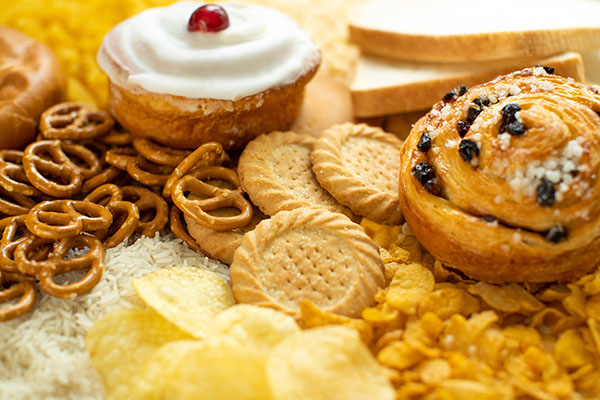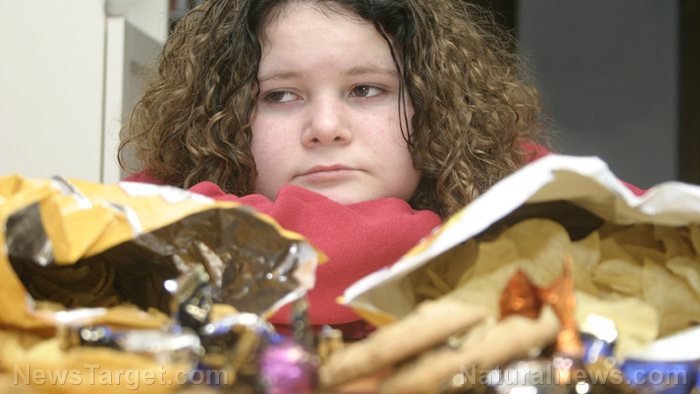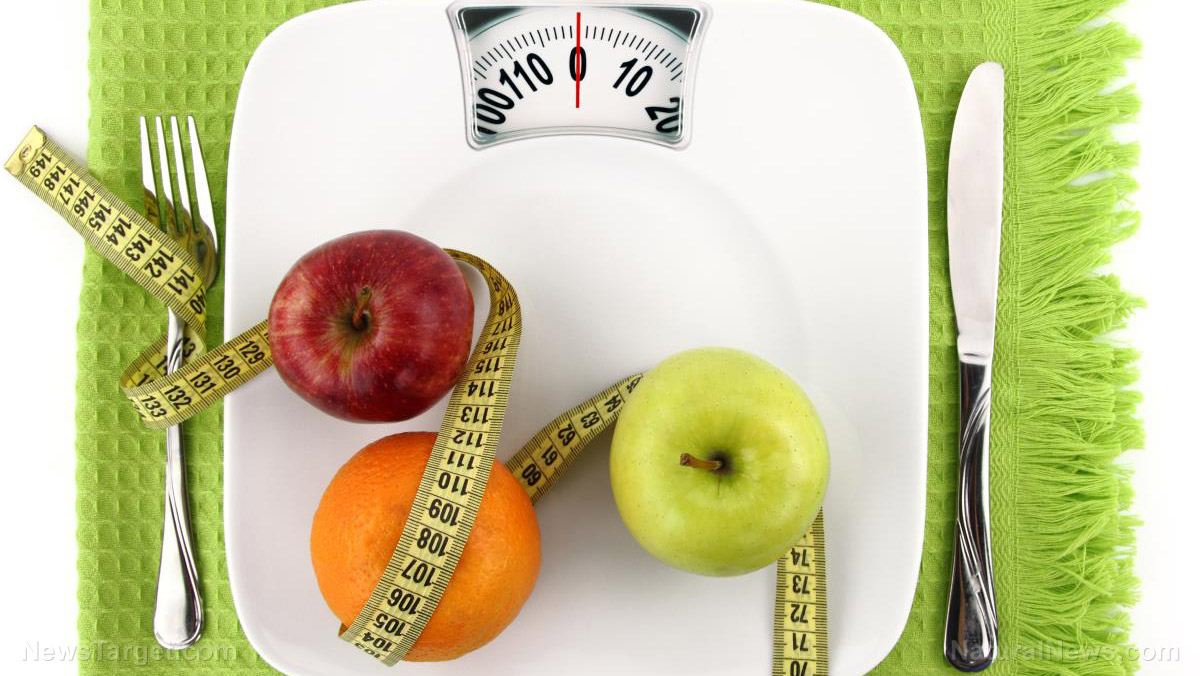Excessive consumption of BAD CARBS increases risk of CANCER
10/10/2023 / By Olivia Cook

Carbohydrates are macronutrients that provide energy, protect against disease and weight control. However, observational studies show evidence that high intake of bad carbohydrates may increase the risk of developing certain types of cancer.
Refined carbs
Refined carbs include bagels, bread and tortillas containing white flour (made from refined grains), breakfast cereals, pastries, pizza, rice cakes, waffles and white rice. They lack fiber and nutritional value.
The body uses refined carbs more quickly to create a short burst of energy. Once that burst is over, the body is prompted to eat more – resulting in higher caloric consumption that can contribute to weight gain or obesity, which then increases your risk of health issues.
Sugars
“Cancer and sugar are best friends,” said Dr. Patrick Quillin, former director of nutrition for Cancer Treatment Centers of America in Tulsa, Oklahoma. “Sugar essentially feeds tumors and encourages cancer growth – at 10-12 times the rate of healthy cells. In fact, cancers light up when taken up into cancer cells after patients drink sugar water.” (Related: A sugary drink a day could increase your risks of chronic liver disease and liver cancer.)
According to Quillin, an intake of 10 teaspoons of sugar can cause about a 50 percent reduction of phagocytosis or “cell eating” – the “Pac-Man effect” of the immune response. He also cited a study wherein research subjects were “found to have nearly a 38 decrease in phagocytosis one hour after consuming a moderate amount of sugar. Two hours later, their immune systems were suppressed by as much as 44 percent – with their immune functions not recovering completely for a full five hours.”
Ultra-processed foods
Ultra-processed foods are a “patchwork of ingredients” – containing high levels of added sugars, fats, hydrogenated oils, salt, starches and additives like artificial colors and flavors or stabilizers. They contain only a few ingredients from natural whole foods.
Researchers in a study published in the British Medical Journal associated a 10 percent increase in the proportion of ultra-processed foods in the diet with a 12 percent risk of overall cancer and an 11 percent risk of developing breast cancer – findings that add to strong scientific evidence that links poor diet with obesity, being overweight and cancer risk.
Available suggestive evidence in a meta-analysis published in the journal Clinical Nutrition showed consistently significant association between the consumption of ultra-processed foods and the risk of overall and several specific cancers of the bowel, breast, colon, pancreas and rectum.
Great sources of good carbs
Carbohydrates in their natural, fiber- and nutrient-rich forms are healthy. Here is a short list of foods that are great sources of good carbs.
Green leafy vegetables, such as green leaf lettuce, kale, spinach and turnips. They contain carotenoids that act as antioxidants and boost the body’s own antioxidant defenses against free radicals that damage DNA, which can lead to cancer.
White vegetables, such as cauliflower. They are sources of lutein (a pigment that’s related to vitamin A) which has been shown to help remove excess estrogen and carcinogens from the body. Find out more healthy foods that are high in lutein.
Orange, red and starchy vegetables, including bell peppers, carrots, corn and whole potatoes. They contain anti-oxidant carotenoids (notably beta-carotene) that keep free radicals from harming the DNA in your cells.
Plant-based proteins, including beans, broccoli, legumes, mushrooms, nuts, seeds and soy. They have more fiber, vitamins and minerals and active phytochemicals that keep cells healthy and lower the risk of the type of DNA damage to cells that cause cancers.
Many nuts contain mostly healthy mono-unsaturated fatty acids (MUFAs) – mainly oleic acid – that have been reported to decrease cancer risks, e.g., colorectal cancer and pancreatic cancer.
Unsaturated oils, including olive oil and extra virgin oils. A study published in the International Journal of Molecular Sciences indicated that olive oil contains a number of bioactive substances, including polyphenols and triterpenes that exhibit anti-inflammatory, antioxidant and anti-tumor properties.
Researchers in meta-analysis studies associated olive oil consumption with lower odds of developing breast and digestive cancers.
Whole fruits, such as bananas, berries, oranges and raisins. Nutrients in fruits not only stimulate the immune system, but also serve as great sources of fiber, vitamins, minerals and natural antioxidants that have cancer-protective effects. Learn more about fruits for a sweet way to reduce cancer risk.
Whole grains, such as barley, brown rice, oats and wheat. According to a study published in the Journal of the American College of Nutrition, phytoestrogens in whole grains have hormonal effects and are particularly important in the prevention of hormonally-dependent cancers, such as breast and prostate cancers.
Visit CancerCauses.news for more about bad carbohydrates and how they cause cancer.
Watch the following video explaining why carbohydrates are the likely cause of significant heart disease instead of fats.
This video is from the Josh Peck channel on Brighteon.com.
More related stories:
Health and nutrition: Can you eat processed foods while following a diet to reduce cancer risk?
Study: Ultra-processed foods linked to increased risk of developing inflammatory bowel disease.
Study links use of artificial sweeteners to increased cancer risk.
Sugar is cancer’s best friend: Research reveals how it feeds tumors.
Sources include:
Submit a correction >>
Tagged Under:
bad carbs, cancer criminals, carbohydrates, fast food, fasting, food science, frankenfood, fruits, health science, nutrients, nutrition, organics, refined carbs, stop eating poison, sugars, veggie
This article may contain statements that reflect the opinion of the author
RECENT NEWS & ARTICLES
Fasting.News is a fact-based public education website published by Fasting News Features, LLC.
All content copyright © 2018 by Fasting News Features, LLC.
Contact Us with Tips or Corrections
All trademarks, registered trademarks and servicemarks mentioned on this site are the property of their respective owners.




















